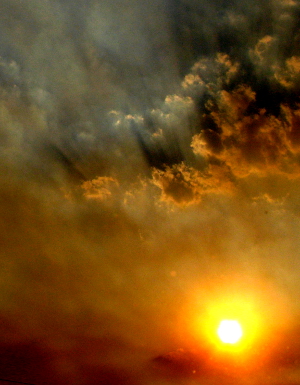Smoke risk assessed

Led by Professor Jay Horvat and Dr Henry Gomez, the research, driven by the devastating 'Black Summer' bushfires of 2019-2020, was supported by a Medical Research Future Fund grant.
The experts have revealed details of the detrimental effects on both short and long-term health, emphasising the smoke's role in exacerbating respiratory and cardiovascular conditions.
In studies conducted on mice, the team discovered that exposure to the particulate matter from bushfire smoke not only increased the airway hyperresponsiveness but also led to steroid insensitivity in experimental asthma.
“Our research demonstrates that even small amounts of physiologically-relevant particulate matter from landscape fire smoke have significant effects on lung and heart physiology,” explained Professor Horvat.
This is particularly concerning given that many Australians were exposed to unprecedented levels of this smoke during the recent bushfires, leading to a spike in respiratory and cardiovascular issues.
Furthermore, short-term exposure was found to impair cardiac function, linked to gene changes associated with oxidative stress and cardiovascular pathologies.
The research paves the way for developing new therapies aimed at protecting individuals from such exposures, especially those with pre-existing conditions like asthma and heart diseases.
Professor Horvat stressed the importance of new protective strategies as exposure to bushfire smoke often cannot be completely avoided.
“What our experience showed us during the black summer bushfires is that completely avoiding exposure to landscape fire particulate matter inhalation is almost impossible,” he said.
The study also noted that particulate matter from different fuel sources had similar effects at equivalent exposure levels. However, further research is required to understand how varying particulate matter levels from different sources impact different populations.
The full study is accessible here.







 Print
Print